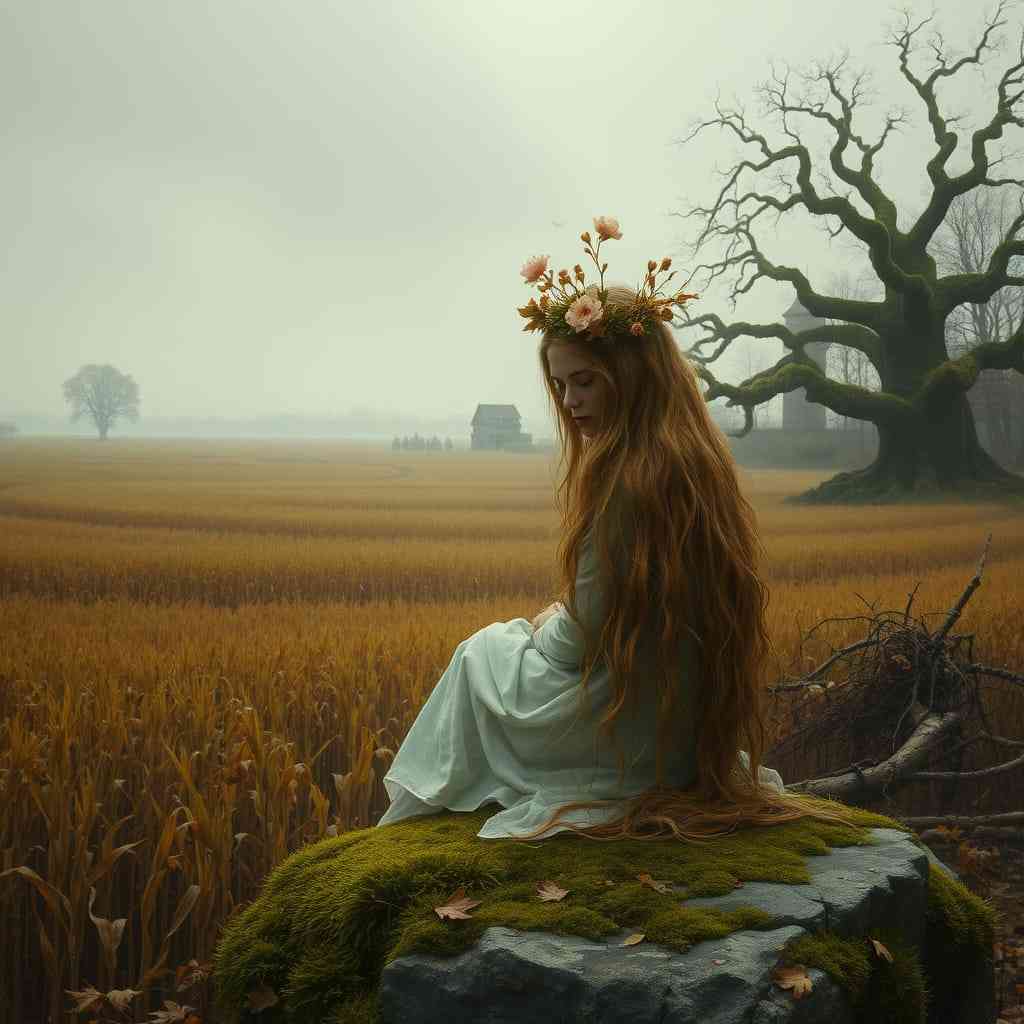Ode: Autumn
Thomas Hood
1799 to 1845

Track 1
Reconstruct the poem by dragging each line into its correct position. You can also use the up (↑) and down (↓) arrows to move a line one place at a time, or the top (⇑) and bottom (⇓) arrows to move a line directly to the top or bottom. Your goal is to reassemble the original poem as accurately as possible. As you move the lines, you'll see whether your arrangement is correct, helping you explore the poem's flow and meaning. You can also print out the jumbled poem to cut up and reassemble in the classroom. Either way, take your time, enjoy the process, and discover how the poet's words come together to create something truly beautiful.
Easy Mode - Auto check enabled
Shaking his languid locks all dewy bright
Doubtful what ghostly thing will steal the last
Enough of bitter fruits the earth doth bear,—
And tear with horny beak their lustrous eyes.
Enough of fear and shadowy despair,
Where is the Dryad's immortality?—
And sighs her tearful spells
Of conscious cheeks most beautifies the light:
Amongst the sunless shadows of the plain.
Stand shadowless like Silence, listening
Opening the dusky eyelids of the south,
Blushing their last to the last sunny hours.
And Morning sings with a warm odorous mouth.
Or wearing the long gloomy Winter through
There is enough of wither'd everywhere
Trembling,—and one upon the old oak tree!
Like a dim picture of the drownëd past
To make her bower,—and enough of gloom;
The many, many leaves all twinkling?—Three
Where is the pride of Summer,—the green prime,—
Where are the merry birds?—Away, away,
Where are the blooms of Summer?—In the west,
On panting wings through the inclement skies,
Like tearful Proserpine, snatch'd from her flow'rs
Lest owls should prey
Enough of chilly droppings from her bowl;
The swallows all have wing'd across the main;
In the hush'd mind's mysterious far-away,
On the moss'd elm; three on the naked lime
Into his hollow ear from woods forlorn,
Pearling his coronet of golden corn.
To silence, for no lonely bird would sing
In the smooth holly's green eternity.
To frame her cloudy prison for the soul!
There is enough of sorrowing, and quite
When the mild Eve by sudden Night is prest
Whilst all the wither'd world looks drearily,
O go and sit with her, and be o'ershaded
The squirrel gloats on his accomplish'd hoard,
And honey been save stored
Where are the songs of Summer?—With the sun,
Under the languid downfall of her hair;
Undazzled at noon-day,
With tangled gossamer that fell by night,
The ants have brimm'd their garners with ripe grain,
With the last leaves for a love-rosary;
But here the Autumn melancholy dwells,
Till shade and silence waken up as one,
Is Beauty's,—she that with the living bloom
To a most gloomy breast.
I saw old Autumn in the misty morn
She wears a coronal of flowers faded
Gone into mournful cypress and dark yew,
Alone, alone,
Upon a mossy stone,
The sweets of summer in their luscious cells;
She sits and reckons up the dead and gone,
If only for the rose that died, whose doom
Upon her forehead, and a face of care;—
Nor lowly hedge nor solitary thorn;
There is enough of sadness to invite,
Into that distance, gray upon the gray.

